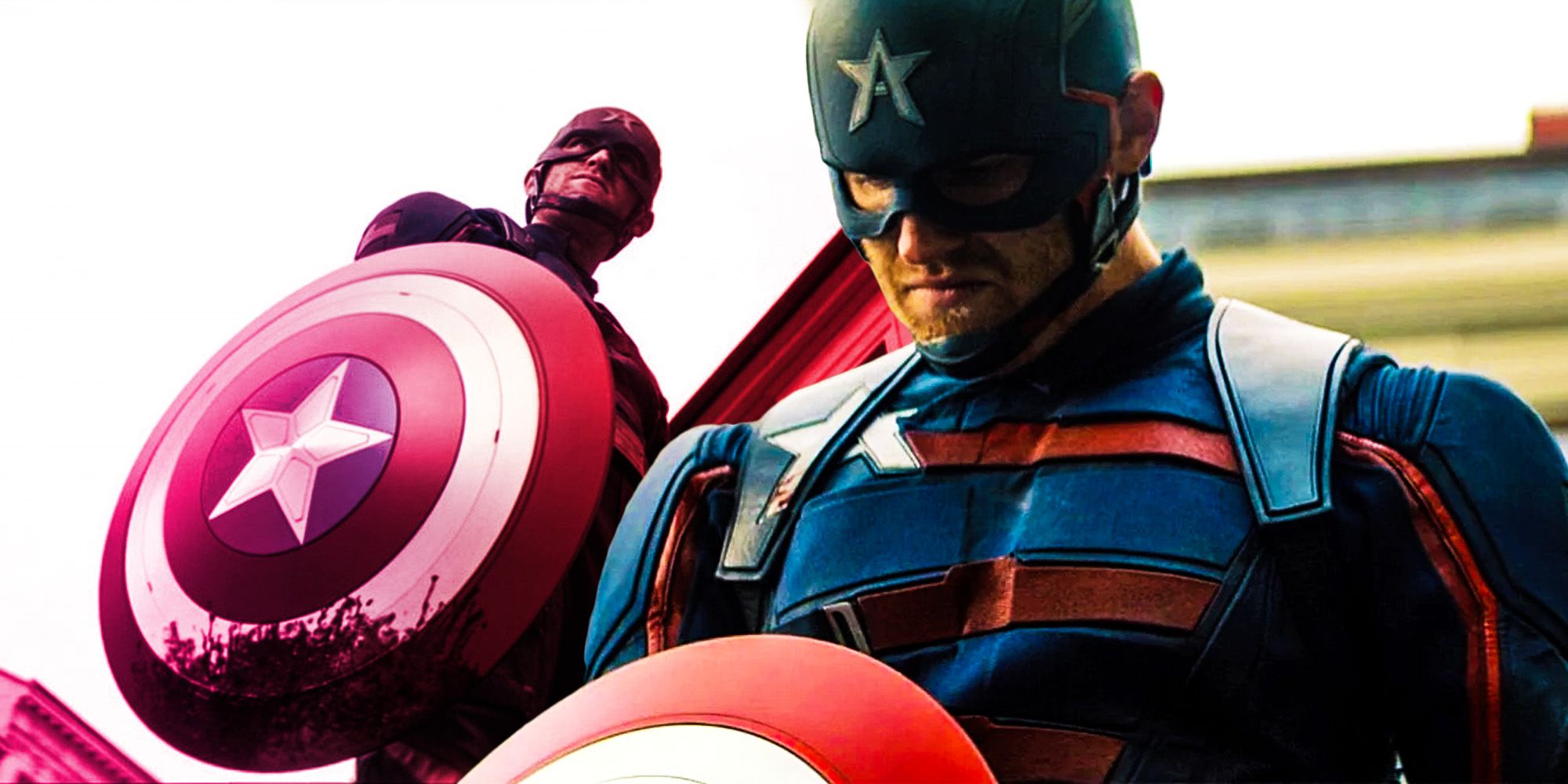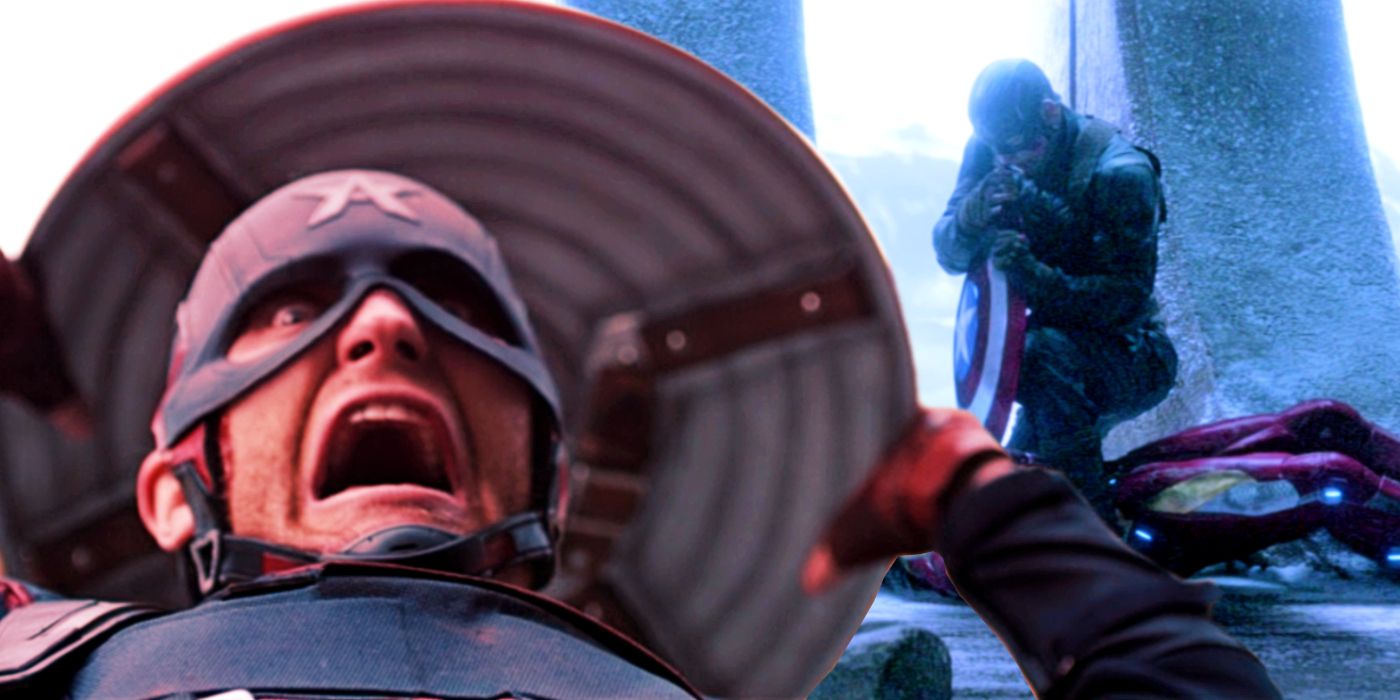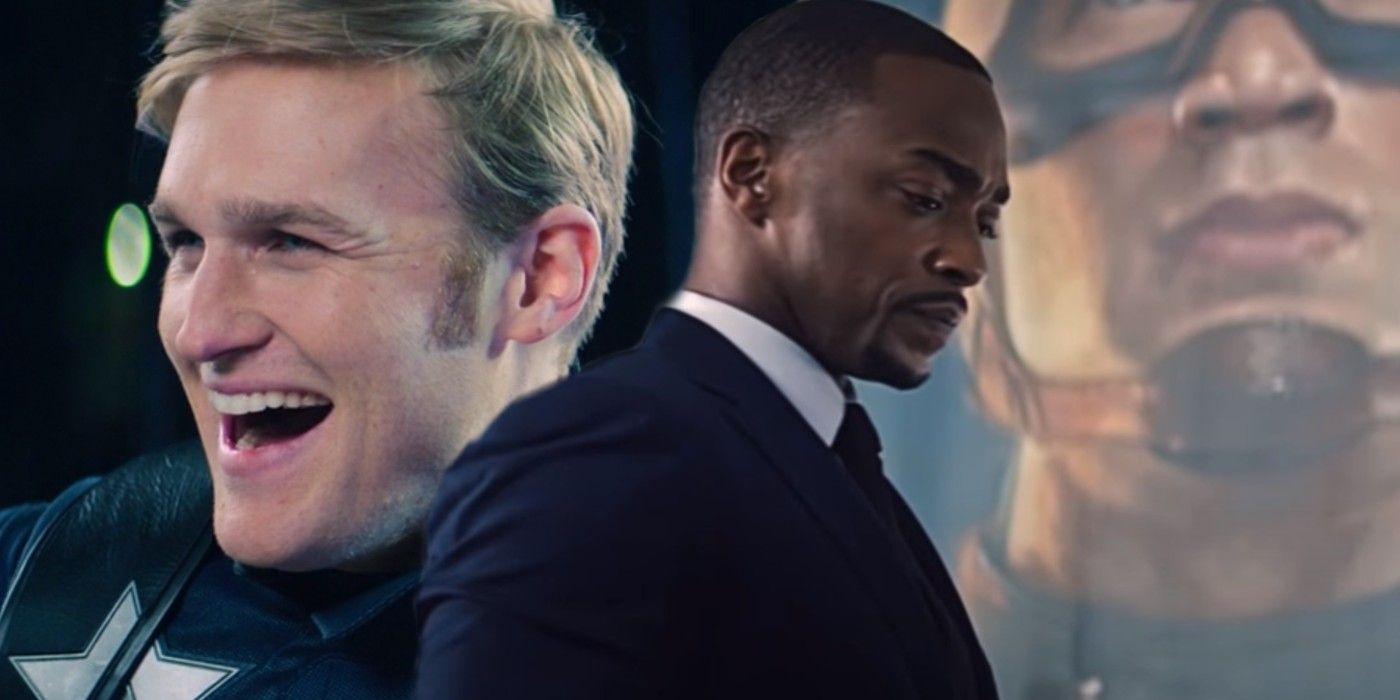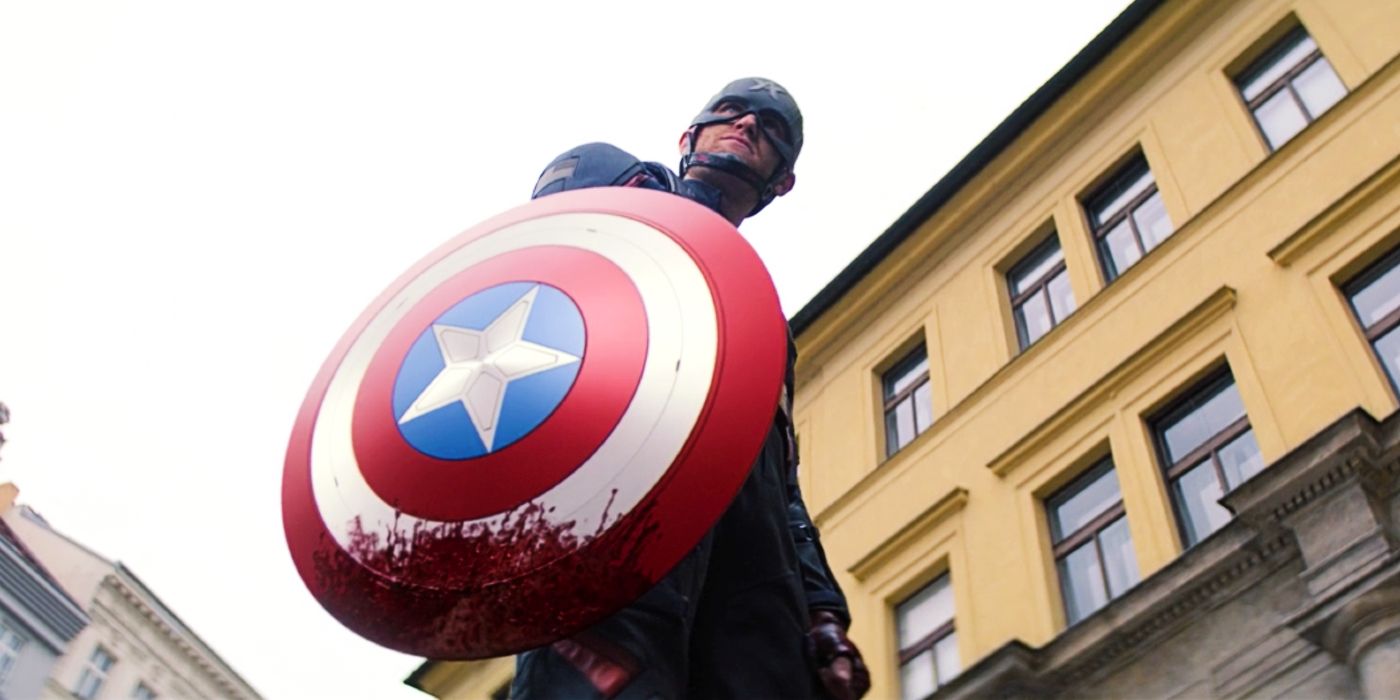Making Captain America A Villain Is Phase 4's Smartest Twist

Warning! Contains SPOILERS for The Falcon and the Winter Soldier episode 4, "The Whole World is Watching."
Captain America becomes a villain in The Falcon and the Winter Soldier episode 4, and that makes for one of the smartest twists of Phase 4 of the Marvel Cinematic Universe. The first episode of Falcon and Winter Soldier introduced a new Captain America in John Walker, who was the perfect soldier designed to take on the mantle (which Sam Wilson had passed-up) and ostensibly be the United States' next great hero. Unfortunately, things haven't quite worked out that way.
When Walker was properly introduced in The Falcon and the Winter Soldier episode 2, it became clear that he was very different to Steve Rogers. In that and subsequent installments, he was shown to be more egotistical and, more worryingly, much more aggressive. At the same time, however, he was a decorated soldier who had lots of the right qualifications (or seemingly did) to be the new Captain America. As he struggled to live-up to the weight of expectation and get the job done though, things took even more of a turn.
That resulted in Walker taking the last vial of Super Soldier Serum in The Falcon and the Winter Soldier episode 4, "The Whole World is Watching." The effects of that - which make good great, but bad into worse - combined with the death of Lemar Hoskins, aka Battlestar, resulted in him snapping. Walker viciously beat Nico, a Flag-Smasher, to death with the Captain America shield, twisting the character into a villain in a moment that was horrific, but in storytelling terms very smart.

Since the very beginning, the Marvel Cinematic Universe has loved to use the dark mirror trope with its villains - that is, having bad guys who are reflections of the heroes. This makes sense not only because it's also so common in the comics, but because doing so allows for a more in-depth exploration of who the hero really is, and what makes them good. By showing what they could have become, then there''s added value in seeing that they were able to avoid such a fate. From Obadiah Stane onwards, it's something there's been a lot of in the MCU, and in particular with Captain America villains - Red Skull and Winter Soldier, at the very least, use this effectively because of their use of the Super Soldier Serum.
John Walker in The Falcon and the Winter Soldier essentially completes this as far as Captain America is concerned. In the previous cases, the point was to have Steve Rogers fight against those villains, but his absence actually highlights even better just how good he was. With John Walker using the serum and then brutally murdering Nico, one of the Flag-Smashers, then it's like watching an alt-scenario of the Captain America story play out. Walker is a decorated soldier who, on the surface, has all the right qualities and attributes to be Captain America, but quite clearly fails at being the "good man" that Abraham Erskine made apparent was so integral. Because Walker is Captain America, then it makes the dark mirror trope even more literal because this isn't just another character, but an actual Captain America who has gone rogue. Heading into the rest of Phase 4 and beyond, that Marvel is able to refresh it and add even more depth to it is not only key for Falcon and Winter Soldier, but for the MCU going forward too.

As Marvel continues into Phase 4 and its post-Avengers: Endgame timeline, then it increasingly has to reckon with the idea of legacy or replacement heroes. Iron Man, Captain America, and Black Widow are all gone (either dead or seemingly believed to be), and Hulk and Hawkeye will both likely have passing-of-the-torch moments in the future as well. Having different characters take on existing mantles is nothing new in the comics, but it does pose a challenge for Marvel Studios going forward as it needs to do something a little different. After all, having had over a decade of Robert Downey Jr.'s Tony Stark/Iron Man, it'd be difficult for someone else to just come in and replace him in a more straightforward way, and The Falcon and the Winter Soldier is the first attempt to dealing with these legacies.
The twist of having Captain America being a villain, then, addresses this in two ways. Firstly, it shows how Phase 4 (and what comes after that too) can smartly use legacy characters and replacement figures. Rather than just showing Sam Wilson learning to become Captain America, audiences get a very different journey, which in turn shows just how hard it is to live up to the iconic heroes who come before. It essentially takes what's a creative struggle and makes it into a plot point, but it also navigates it by doing something truly different. Rather than just having someone else be Captain America, who may have their own personality but largely operates in the same way Steve Rogers did, Captain America being a villain does something completely different. He is a truly new Captain America, rather than a mere replacement, and in turn can also give more meaning to if/when Sam eventually takes on the role. There'll be even greater weight on his shoulders at that point, but also a knowledge that he has to be neither Steve nor Walker, but something else and mostly, himself. That kind of logic can then be applied to all of Phase 4's legacy heroes, allowing them not to exist as shadows of what came before - She-Hulk isn't simply replacing Hulk, Kate Bishop is not just taking over from Hawkeye - and shows how they can be distinct, unique heroes.
With that, it also highlights how legacy heroes in Phase 4 can not only be interesting new characters and take over from existing characters, but also add to their stories too. The new Captain America adds a lot to Steve Rogers' legacy: by having him be a villain in particular, and showing how he handles adversity, the pressures of the shield, the loss of his best friend, and taking the serum, it really hammers home Steve's greatness. While there's a lot of nuance to how the MCU is adding to its super soldier story, it's clear that Steve Rogers, while never being perfect, was the only person who could've been the Captain America that he was.

Since Wyatt Russell was cast in The Falcon and the Winter Soldier, then there has been an expectation of Captain America becoming a villain in some quarters, because of how John Walker's story goes in the comics. But to many observers of the show, this is the first time audiences at large will have heard of the character, with little idea of what to expect. And so by giving him the title of Captain America, then there is some expectation of him being a real hero, or at least anti-hero, even if he's immediately very different to Steve Rogers, and clearly nowhere near as likable since so many fans took an instant dislike to him. By having Captain America kill Nico, then it makes for a genuine twist, and one of the biggest possible of Phase 4 in such broad terms, given Captain America is one of the MCU's two biggest characters so far.
Even for viewers who are well-versed in the comics and fully expected the new Captain America to become a villain, though, there's a sense in this still being shocking. Walker killing Nico with the shield is a brutal, visceral moment; it is bloodier and more horrific than much of what the MCU has ever done, and isn't the kind of scene that would be easy to include in an MCU movie because of its relatively graphic nature. Much like WandaVision went dark in thematic terms as it explored grief, Captain America being a villain in The Falcon and the Winter Soldier shows how Phase 4 can, even in the context of something that is mostly very recognizably MCU, it can still shake-up the formula and do new things, especially in terms of taking the Marvel Disney+ shows in bolder (and darker) directions).
from ScreenRant - Feed https://ift.tt/2RwfXm4
via Whole story

Post a Comment